|
This Sunday's reading from Luke is from one of my favorite passages in the Gospel. We pick up with the two disciples who just encountered Jesus on the road to Emmaus. Whatever business these disciples had out in the countryside, they abandoned their plans after their encounter with Jesus and ran back to Jerusalem to share what had happened. The Gospel says that “While they were still speaking about this, he stood in their midst and said to them, ‘Peace be with you.’” Based on how abruptly Jesus appears to the rest of the disciples, we can imagine that they were incredulous at what Cleopas and his companion were telling them. As with “Doubting Thomas,” it seems that the other disciples also needed to see in order to believe.
It’s interesting to compare the encounter on the road to Emmaus to the interaction that takes place here. When the two disciples met Jesus on the road to Emmaus, they had no idea it was him. He walked with them, developed a rapport with them, and only then did he challenge their worldview and lack of faith in the promises of God. He gently rebuked them, opened up the Scriptures to them, and then broke bread with them. And it wasn’t until that moment that they truly understood who Jesus was and how he fulfilled the Scriptures: “Were not our hearts burning within us while he spoke to us on the way and opened the scriptures to us?” Jesus was patient, meeting them where they were and letting them understand God’s work at their own pace. When Jesus appears to the rest of the disciples, he seems to appear out of nowhere. They all panic and think he’s a ghost until he proves his physical presence to them: he shows them his wounds and even eats something right in front of them. It seems he has the intent of driving the point home, opening their minds to understand the Scriptures. This time, it’s without rebuke, without judgment or frustration. He instead gives the disciples something to look ahead to: “You are witnesses of these things… I am sending the promise of my Father.” He doesn’t just explain the past, but also hints at what’s to come! I love this passage because it speaks loudly to our tendency to not really take matters of faith to heart. And it’s so easy to do. Even for a person of faith, the Passion, death, and Resurrection of Christ can seem completely outrageous! We can be slow to understand God’s plan and actions in the world and in our lives, especially when they are different from our own. Even saints like Mother Teresa experienced doubt at times. But we can take heart in knowing that, when these times of doubt come up, Jesus will make himself known to us in some way, much like he did on the road to Emmaus and in his appearance to the disciples in Jerusalem. He may not be as explicit as we’d expect; it can come through a word from a friend, a kind gesture from a stranger, or even our own actions toward others. God uses all the experiences and encounters in our lives to invite us to encounter him, too. Just like on the way to Emmaus, he walks with us, befriends us, and shows us the truth. Sometimes when we are slow to understand, he acts more directly and obviously in our lives, as he did with the disciples in Jerusalem. As we continue this joyful season of Easter, let us always listen to those times our hearts are burning within us. It is then that God speaks to us most clearly, if only we pay attention to Him. Question for Reflection: How is God walking with you this Easter season?
0 Comments
On this day we memorialize the death of John the Baptist, the man who introduced Jesus’s ministry to the world and whom Jesus said was the greatest man born among women (Matt 11:11). Yet, despite this accolade from the Son of Man himself, the Gospels tell us that John the Baptist also seems to have wrestled with something that many of us are still wrestling with today: doubt. Yes, even the Baptist, the camel-shirt-wearing, desert dwelling, locust-crunching prophet who calls the crowds that come to him a “brood of vipers,” sat in prison and wondered about whether the “nobody” carpenter from Nazareth was who he said he was.
The Gospels suggest that part of John’s doubt seems to have come from his expectations for Jesus. When John is called by God out of the desert, he announces the coming of the Messiah with metaphors of destruction: “Even now the ax lies at the root of the trees. Therefore every tree that does not bear good fruit will be cut down and thrown into the fire. I am baptizing you with water, for repentance, but the one who is coming after me is mightier than I. I am not worthy to carry his sandals. He will baptize you with the holy Spirit and fire. His winnowing fan is in his hand. He will clear his threshing floor and gather his wheat into his barn, but the chaff he will burn with unquenchable fire.” (Matt 3:10-12) John’s expectation for the Messiah is that he will cleanse through destruction; that he will rid the world of sin, but in a grandiose, violent way. His metaphors and proclamations are laced with references to fire and culling, suggesting that John envisions Jesus the way we tend to envision John—full of passion, intensity, even a little frightening. When Christ comes to John for baptism, Christ does not condemn John’s vision, but rather Jesus’ ministry adds to the story. Rather than cutting the root from the tree, Jesus invites sinners to dine with him. Rather than shaking his fists from the river, Jesus sits on the mountain top and declares the poor blessed. Later, when John is imprisoned for publicly condemning the unlawful marriage of Herod, he receives word of Jesus’ latest miracles: the healing of a Centurion’s slave and raising of a widow’s dead son. The Gospels paint an interesting portrait of John’s response. When John heard in prison of the works of the Messiah, he sent his disciples to him with this question, “Are you the one who is to come, or should we look for another?” (Matt 11:2-3) I can imagine John sitting in the corner of his cell, hearing of these miracles and wondering whether everything he thought about the Carpenter had been wrong. In the darkness of his cell, alone, surely knowing he would soon die, John doubts whether this man who heals is actually the ax he had been expecting. There are two things that stand out about John’s moment of doubt: First, John’s response to his doubt is to go to the source himself. John does not sit frustrated and angry, allowing his doubt to grow into resentment or apathy like so many of us do today. He sends his disciples to Jesus directly. John’s response should serve as a model for our own inquiries. Prayer, direct communication with Christ, is necessary to knowing the truth about his identity. Imagine it in terms of a marriage. What if a husband and wife never communicated with one another when they were concerned with the actions of the other? Not only does a potentially problematic action go unaddressed, but the spouse who desires to know the mind of her lover cannot. She risks constructing a faulty image in her head, one that further drives a wedge between herself and her husband. So too do we drive a wedge between ourselves and the Lord when we doubt and leave those doubts untethered by prayer. When we question Christ, when we question our faith, when we question what is right or how to respond to injustice with charity, we should take those questions to prayer and ask for understanding. We should ask to see God as he truly is, not as we want him to be. The second important thing to note about John’s moment of doubt is Jesus’ response. Matthew reports it this way: Jesus said to them in reply, “Go and tell John what you hear and see: the blind regain their sight, the lame walk, lepers are cleansed, the deaf hear, the dead are raised, and the poor have the good news proclaimed to them. And blessed is the one who takes no offense at me.” As they were going off, Jesus began to speak to the crowds about John, “What did you go out to the desert to see? A reed swayed by the wind? Then what did you go out to see? Someone dressed in fine clothing? Those who wear fine clothing are in royal palaces. Then why did you go out? To see a prophet? Yes, I tell you, and more than a prophet. This is the one about whom it is written: ‘Behold, I am sending my messenger ahead of you; he will prepare your way before you.’ Amen, I say to you, among those born of women there has been none greater than John the Baptist; yet the least in the kingdom of heaven is greater than he. (Matt 11:7-10). In his response to John and the crowds, Jesus first reaffirms his own actions, for these are the actions foretold in Scripture of the coming of the Messiah. He does not answer with words, but with deeds, highlighting the truth that “by their fruit will you know them.” Jesus then also seems to chastise the crowd for their judgment of John. “What did you go out to the desert to see? A reed swayed by the wind?” Jesus says that John’s vision of Christ is admirable, as it comes from place of virtue and strength. Although John initially sees Jesus only through his own eyes, Jesus recognizes that those eyes earnestly desire the truth and have been well formed. Jesus rewards John for his faith, even if it is imperfect. He does not allow John to remain misguided, but he recognizes John’s effort to know Christ as well as he can and rewards him with the accolade “no greater than.” On the memorial of his death, let us try to be a little more like John the Baptist. Let us yearn for the Lord. Let us know him in prayer and the sacraments. Let us have the humility to open ourselves and our expectations to revision. Let us place our doubts before the Cross and allow John’s words to guide our prayers: “He must increase; I must decrease.” Questions for Reflection: How can moments of doubt make your faith stronger? Is Jesus inviting you to “go to the source” – to come to him in prayer? Where has the time gone? I’ve been asking myself this question over and over again throughout the past few days. Having just graduated from college, I find it quite surreal that my life is no longer dominated by the academic schedule. I almost feel as if I am a new person, having joined the “real world” as a young adult. It is exciting to have entered a new chapter in my life and exercise control over fulfilling my desires and goals in life. During major times of transition, I think it is beneficial to take the time to seriously reflect on all who have supported me along the way and up to where I am now: typing this after a day’s work at the office in a new city. As senior year drew to a close, I recalled moments not only of joy but also of sadness and difficulty. Remembering who it was that remained at my side during those moments of formation and struggle, and valuing their friendship and presence in my life, causes me to thank God for those college experiences. Those relationships caused me to glimpse the faithfulness and love of God. Sometimes, I can’t help but wonder whom I have touched with my own presence or friendship. As a human being, I am imperfect. I experience weakness. I worry. I have doubts and deficiencies. While these are important to acknowledge, I cannot waste time dwelling on them. In my shortcomings, my relationships with others may be strained, but there is also an opportunity to grow even closer to one another. Similarly, one’s waywardness is always ready to be met with God’s faithfulness: “If we are unfaithful he remains faithful, for he cannot deny himself” (2 Tim 2:13). We are called to model God’s faithfulness in our own friendships. The authenticity of such a relationship is made plain especially in times of difficulty. I like to recall Job’s friends who, upon seeing his experience of great loss, “sat down upon the ground with him seven days and seven nights, but none of them spoke a word to him; for they saw how great was his suffering” (Job 2:13). Similarly, “Two are better than one… If the one falls, the other will help the fallen one. But woe to the solitary person! If that one should fall, there is no other to help” (Eccl 4:9). There were many times throughout college that people “sat down upon the ground” with me and many times I did the same for others. I truly saw how “two are better than one,”—how we need one another to help us when we fall. Talking to my peers as graduation approached, I heard and shared thoughts of both excitement and apprehension. Graduation sometimes resembles the “real world” knocking on one’s door with a collection call. I agreed with this somber view until I attended a retreat where I heard it said that the “real world” touted by society was nothing more than a deprivation of what readily exists for the faithful: the Church. At every moment, God walks with us. He readily comforts us, listens to us, calls to us, and freely and completely offers His perfect love to us. While the world we live in can be unforgiving, rough, and fatiguing, let us recall Who walks beside us and never fails us. We are called to imitate this unfailing love and walk beside our brothers and sisters. Our lives are spent in pilgrimage seeking God. Along the way, we often encounter others who are seeking the same end. Sharing this pursuit, then, becomes a shared labor of faithfulness and strength. We are weak on our own, but together, as we experience in the Church, strength and comfort are found to help us journey on. As one of my friends reflected, “[T]he journey to heaven is not a solo trek. You seek to bring everyone with you. If one person falls, you travel to him or her, and help them get up, and you carry along together towards the destination. This is what God has entrusted us to do, to reveal such love as His love.” God is faithful, especially in times of great change. As I begin this new chapter of my life, I strive to reveal the faithful love of God to those I encounter. May we, at every moment, endeavor to do the same! Question for Reflection: How do you turn to God in times of transition? But he said to them, "Unless I see in his hands the print of the nails, and place my finger in the mark of the nails, and place my hand in his side, I will not believe." -John 20:25 During this beautiful liturgical season of rejoicing in the Resurrection of Our Lord, I always find this particular passage about “Doubting Thomas” extremely important to stop and reflect upon. After weeks and weeks experiencing the desert of Lent, the Passion on Good Friday, and the somber waiting on Holy Saturday, we celebrate the Father’s goodness, His promise fulfilled, His Son glorified on Easter Sunday! Praise Him, for “by his wounds we are healed.” (Isaiah 53:5) On the Sunday when the Gospel passage about Thomas is proclaimed, I tend to sympathize with the “doubting” disciple. Thomas was not there the first time Jesus appeared to the disciples. I resonate with Thomas’s human response of needing to touch the side of the Lord in order to believe. What strikes me about Thomas is his initial understanding that the Resurrected Lord would have His wounds. Why did Thomas believe the Lord in His glory would still be wounded? I find myself thinking of the Lord in His glorified body as “perfect,” without blemish, without the aftermath of pain, with every scar from Good Friday completely gone. Thomas, however, needed to see evidence from the Lord’s action on Friday for the sake of belief. Thomas came to know the Risen Lord through His wounds. Do you fall into the same temptation that I do, that resurrection means pain and suffering will be completely dispelled and erased, as if it never happened? This is not how the Lord comes in His glory. Jesus returns with His wounds, glorified, resurrected, transfigured. In fact, Jesus’ wounds were necessary for the increasing of faith for His disciples. Christ takes on the burden of our sins in order to overcome them. He conquers man’s greatest foe, death itself, and invites us to eternal life. The scars and wounds Christ shows Thomas give testament to this truth. The pain of Good Friday brings the sweetness in the joy of the Resurrection on Easter Sunday and thereafter. How does this apply to our lives? Are you struggling with something you see little hope in? Do you find yourself asking the Lord for a different cross? Just as Jesus’ wounds and sufferings are glorified, so shall ours be if we turn them over to God. We can be sure then that our own struggles, crosses, and sufferings will be brought to glory, not forgotten, but resurrected. Our particular areas of pain can bring others to the glory of Jesus Christ! Let us ask St. Thomas to help our unbelief and truly live in the hope of the Resurrection. “Each man in his suffering can also become a sharer in the redemptive suffering of Christ.” –St. John Paul II, Salvifici Doloris Question for Reflection: How can the story of “Doubting Thomas” increase your faith? Have there been times in your life when you, too, need to see in order to believe? Deep Breath In, Deep Breath Out Have you had a chance today to think about God’s love? No? Well, do this with me… Deep breath in. Deep breath out. With every breath we take, we know we were made for here, for right now, this time, this century, not by accident, but for a purpose. The first paragraph in the Catechism of the Catholic Church beautifully explains, “God, infinitely perfect and blessed in himself, in a plan of sheer goodness freely created man to make him share in his own blessed life. For this reason, at every time and in every place, God draws close to man. He calls man to seek him, to know him, and to love him with all his strength.” (Emphasis added.) Did you read what the Catechism reminds us? God draws close to man! Can you believe this? No? Hey that’s ok! It’s hard for me to comprehend too, but do this with me… Deep breath in. Deep breath out. It is unnerving that we, His children, can go day-to-day and not really live out of the understanding that we were made by love, for love, to love. At the graduate school I attended, the chaplain for our program would constantly remind us of this fact. On days when my mind was worn down, when I was struggling with anxiety or doubt, I would stumble into his office and explode the complexities of my mind onto him (poor fellow). Ever so gently, he would stop me in my rambling and say, “deep breath in, deep breath out.” He explained to me that the mere fact that we can breathe is a clear sign of the Father’s love, “because if He forgot about you for a millisecond, you would not exist.” He is loving us into existence with every breath we take. Deep breath in. Deep breath out. Do we really live as though the creator of the universe, the creator of love, the Father of heaven and earth has made us, loves us here? If I lived in this simple, yet mind-blowing truth, I think the day-to-day would be less burdensome and my exterior circumstances would not define my level of contentment. My life would be colored with purpose because I was made for love, by love. Are you stressed? Does the state of our world or society bring you fear? Are you looking for fulfillment? Do you desire to be loved? Are you waiting for your vocation? Do this now… Deep breath in. Deep breath out. You were made for here, you are necessary for now, and you are loved into existence because the Father loves you. “We are not some casual and meaningless product of evolution. Each of us is the result of a thought of God. Each of us is willed, each of us is loved, each of is necessary.” –Pope Benedict XVI As we remember Rev. Martin Luther King Jr. on this American federal holiday, I invite you to join me in reflecting on his dream for the United States and for the world. Rev. King fought for equality and justice in the United States using nonviolence. He helped empower American society to look past differences and come together through love by leading people in prayer and using words paired with non-violent actions. As a Baptist minister, Rev. King upheld Christian ideals and spoke to the hearts of all those facing injustice. He personally felt and lived through discrimination and had his share of fear and uncertainty. Yet through these hardships, he led others to see truth in justice and civil rights by organizing non-violent marches and protests, and by preaching unity.
Much of what Rev. King said through his words and his non-violent actions can be compared to the teachings of Christ. In the Gospel of John, for example, Peter tries to defend Jesus from a large crowd trying to arrest him in the Garden of Gethsemane. Jesus tells Peter to “put the sword in its sheath” and in Matthew’s Gospel adds, “all those who take up the sword shall perish by the sword.” In doing so, Christ tells Peter that fighting back with the same means as the enemy will get him nowhere. Earlier in Matthew’s Gospel, while he was preaching about the Beatitudes in the Sermon on the Mount, Jesus reminded his disciples, “You have heard that it was said, ‘Love your neighbor and hate your enemy.’ But I tell you, love your enemies and pray for those who persecute you, that you may be children of your Father in heaven” (Matthew 5:43-45). Christ preached forgiveness through love and mercy throughout his ministry and demonstrated this in a powerful way throughout his arrest and Passion. Jesus demonstrated how love can change hearts and save lives. Martin Luther King Jr. imitated this response. His promotion of unity has had powerful repercussions on our society that are still felt to this day. Unfortunately, discrimination in various forms continues. Our next generation sees pain, division, and fear in the news and TV shows, on social media, and even sometimes right outside their doors. However, those who cultivate empathy for others can make Rev. Martin Luther King Jr.’s dream come true today and breathe life into Christ's teachings in the Gospel. So how can you empower the nation with love? How can you teach through your actions how to live out Christian values and Catholic Social Teaching? In what ways can you help bring understanding and empathy to others? I invite you to reflect on the Beatitudes from Jesus’ Sermon on the Mount (Mt. 5:3-10) as a way to embark on this journey toward building peace! “Now when Jesus saw the crowds, he went up on a mountainside and sat down. His disciples came to him, and he began to teach them. He said: 'Blessed are the poor in spirit, for theirs is the kingdom of heaven. Blessed are those who mourn, for they will be comforted. Blessed are the meek, for they will inherit the earth. Blessed are those who hunger and thirst for righteousness, for they will be filled. Blessed are the merciful, for they will be shown mercy. Blessed are the pure in heart, for they will see God. Blessed are the peacemakers, for they will be called children of God. Blessed are those who are persecuted because of righteousness, for theirs is the kingdom of heaven. Blessed are you when people insult you, persecute you and falsely say all kinds of evil against you because of me. Rejoice and be glad, because great is your reward in heaven, for in the same way they persecuted the prophets who were before you.” Please visit our website to learn more about Cultural Diversity, Catholic Social Teaching and Christian Unity. When the disciples saw [Jesus] walking on the sea they were terrified. “It is a ghost,” they said, and they cried out in fear. At once [Jesus] spoke to them, “Take courage, it is I;* do not be afraid.” Peter said to him in reply, “Lord, if it is you, command me to come to you on the water.” He said, “Come.” Peter got out of the boat and began to walk on the water toward Jesus. But when he saw how [strong] the wind was he became frightened; and, beginning to sink, he cried out, “Lord, save me!” Immediately Jesus stretched out his hand and caught him, and said to him, “O you of little faith, why did you doubt?” -Mt. 14:26-31 I often close my eyes and am transported to the rough waters. I look down at my shaking feet and trembling hands. Only moments ago, I had boldly called out to my Master, “Lord, if it is you, command me to come to you on the water” (Mt. 14:28). My quick strides out of the boat are now feeble in the choppy waters. I begin to sink, “Lord, save me!” (Mt. 14:30). I find myself reflecting on this passage in moments of confusion, storms, and desolation. Peter’s example gives me great consolation, for it reveals the rough fisherman’s humanity. Peter– the impetuous, bold, and quick-tempered disciple who often speaks too quickly or acts without thinking. He requests something impossible by human standards only to be affirmed to “come.” His pride must have crept up quickly as he began an endeavor worthy of bragging rights among the other disciples. It was a lack of faith in Christ, an over-estimation of his own abilities, and a doubt in Christ’s power that led to Peter’s downfall. He began to sink, crying out, “Lord, save me!” Have you ever cried out these words from the depths of your heart? I say those words repeatedly throughout my life whenever I’ve felt myself sinking in choppy waters. The entire Christian life a response to God’s invitation to step out of the boat. I have learned more deeply in this past year that this invitation is the only one that I need to respond to if I want to attain sanctity, if I want to walk on water. I, like Peter, am so human. And yet, Jesus beckons me, he beckons all of us, to walk on water. This gives us hope, for we do not need to be perfect to answer his invitation. We need only to have faith and to be willing to answer when he proposes something different than what we think we need. The Lord never beckons us to impossible waters. While the journey towards sanctity would be impossible on our own, God gives us the grace, the sacraments, the Church, the community, in a word, the extended hand that we need to answer his invitation to “come” (Mt. 14:28). God knows we may never be fully ready to step out of the boat and complete the journey on water towards him. It is for this reason that Jesus calls us with an outstretched hand. Sometimes his hand seems further away than we can handle, but God is never out of our reach. “Come,” Christ says to us all, “experience my glory. Come, live in my love. Come, be like me. Come, walk on water.” Will you step out of the boat? “Christus resurrexit! Resurrexit vere!” “Christ is risen! Truly, He is risen!” This most wonderful news remains at the core of the dogma and Gospel message of Christianity; yet when it was first proclaimed by Mary Magdalene to the apostles, they thought it was utter nonsense. Even nearly two thousand years of evangelization later, there remain those who have doubts, as the apostle Thomas did, about the Resurrection, demanding hard, irrefutable proof that they might begin to believe. Some reject the Church completely, perceiving it as clinging to outdated moral and socioeconomic beliefs. The persecution of the Church in various forms and intensities continues to this day, with some parts of the world undergoing similar brutality suffered by the earliest Christians. Critics continuously point to and decry the scandals and the perceived subsequent reformation failures harming the Church, referencing various statistics on vocation shortages to the priesthood, the instability of parishes, and any and all catechetical dissent from within. In a world where evil appears to be flourishing and truth is increasingly being perceived as relative, the faithful and nonbelievers alike find themselves wondering: how does the Church continue to endure?
“I believe in Jesus Christ” the Creed declares. Our faith is in God— not the clergy, the laity, nor any others who are susceptible to sin. Christ is and remains the “head of the body, the Church… through whom he extends his reign over all things” (CCC 792). Just as Christ chose imperfect men to be His apostles, He commissions us all to “go and make disciples of all nations... teaching them to obey everything I have commanded you” (Matthew 28:19-20). In doing so, we do not call attention to ourselves but to Christ, whose perfection we strive to imitate in our daily lives. As members of the Body of Christ, we are obligated to hold accountable and care for each other as we strive to remain holy (see 1 Corinthians 12:21-31). When one of us falls along the way, we cannot abandon that person— Christ always remains faithful (see 2 Timothy 2:13)! Everyone has shortcomings, yet our Lord never shied away from them because they weren’t perfect. His perfect love sanctifies the Church and gives her life! This same love should drive us to pick ourselves up, seek forgiveness, and continue to complete our mission of evangelization no matter the challenges facing us. As we can see in today’s culture, one of the biggest challenges facing the Church is the problem of moral relativism. Like his predecessors, Pope Francis warned how this way of thinking contributed to the “material and spiritual poverties of our time”: But there is no peace without truth! There cannot be true peace if everyone is his own criterion, if everyone can always claim exclusively his own rights, without at the same time caring for the good of others, of everyone, on the basis of the nature that unites every human being on this earth. The slippery slope of moral relativism threatens the stability of society and the integrity of the human person. The Church, to her credit, is set apart from the rest of the world in her pursuit of Truth. The world, like Pilate, retorts, “What is truth?” (John 18:38) to which the Church responds, “[God’s] word is truth” (John 17:17). I take great comfort in the Church’s strong convictions, particularly regarding human dignity, social justice, and the sanctity of life, marriage, and the family— she does not back down because the truth is unpopular or uncomfortable. In spite of persecution, the Church has always and will continue to remain steadfast in calling the world back to God. As the song goes: Lord, you give the great commission: “Heal the sick and preach the word.” Lest the Church neglect its mission and the Gospel go unheard, help us witness to your purpose with renewed integrity; with the Spirit's gifts empower us for the work of ministry. Though evil seems to overshadow the good in the news, evil never has the final word. God can bring good out of evil; after all, Easter Sunday followed Good Friday. We, as Christ’s Body on earth, cannot sit back and wait for it to happen by itself; rather, it is up to us to pray for guidance and grace to aid us in overcoming the challenges that face us in the mission God has specially tasked us to complete. In the words of St. Josemaría Escrivá, “He did not say you would not be troubled, you would not be tempted, you would not be distressed, but he did say you would not be overcome” (see John 16:33, Matthew 16:18, cf. John 15:18-25). We may pray for an increase in faith, that is, “to touch Jesus and to draw from him the grace which saves,” but even the littlest faith is sufficient to do God’s will (see Matthew 17:20-21, Luke 17:5-6)! May the doubting apostle St. Thomas intercede for us as we continue our noble work! Thomas Wong is an undergraduate at The Catholic University of America in Washington, D.C. 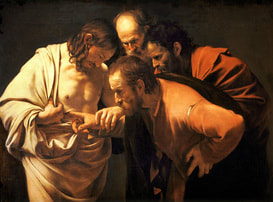 Poor Thomas! One remark by my namesake and he’s forever branded as “Doubting Thomas.” The Church doesn’t honor him each July 3rd for this, however, but for what is absolutely one of the most explicit Professions of Faith uttered in the New Testament: “My Lord and my God!” (see John 20: 24-29, c.f. Luke 7:1-10) In those five words, Thomas boldly expresses his revived belief in his resurrected Master and testifies to His divinity, ready to once again follow Christ and evangelize the world about Him. While this redeeming witness is indeed memorable, it is important to not lose sight of another of Thomas’ statements as recorded in John’s gospel, which shows us more about his personality and in turn, our own faith in Christ, “the assurance of things hoped for, the conviction of things not seen” (Hebrews 11:1). This other mention of Thomas occurs when Jesus decides to travel to the village of Bethany in Judea to raise Lazarus, thus coming dangerously close to Jerusalem (see John 10:22-39, c.f. Mark 10:32-34). Remembering how the Jews there had earlier tried to stone Jesus, the disciples must have felt apprehensive about undertaking such a risky journey (see John 11:8). Thomas, however, seeing Jesus’ determination, exhorts them saying, “Let us also go, that we may die with him” (John 11:16). Brave words for a doubter! Pope Benedict XVI even characterized Thomas’ sincere resolve to follow his Master as something which is “truly exemplary and offers us a valuable lesson: it reveals his total readiness to stand by Jesus, to the point of identifying his own destiny with that of Jesus and of desiring to share with him the supreme trial of death” (September 27, 2006 General Audience). This is the very definition of the Christian life! A life with Jesus is to be with Him through times of joy, peace, hope, success, and prosperity, as well as uncertainty, loss, sorrow, ridicule, and persecution. This is “no sugarplum” as Benedict describes it in Jesus of Nazareth (pg. 67), but without Christ what can one hope for to carry him or her through the trials of life? What would be the point in continuing on? In his final five words recorded in the Bible, Thomas redeems himself after doubting Christ by exclaiming “My Lord and my God!”. The wounds he touched confirm, undoubtedly, the Identity of Christ, the truth of His Message, and the authenticity of God’s infinite Love, not just for Thomas, but all believers! St. Augustine comments on this: Thomas “saw and touched the man, and acknowledged the God whom he neither saw nor touched; but by the means of what he saw and touched, he now put far away from him every doubt, and believed the other” (In ev. Jo. 121, 5). It is important to remember that Saint Thomas, like all the apostles, was personally chosen by Christ in spite of their weaknesses and lack of understanding. But Christ did not pick worthless men! Rather, their failings are a reminder that holiness is a gift from God and not a human creation, given to us, who have our own weaknesses, so God can transform them into the loving image of Christ and mature our faith. Jesus also permitted Thomas to doubt after the resurrection but did not abandon him in those doubts, instead allowing him to bear witness to the truth of the resurrection and thus verify the whole Christian message (see 1 Corinthians 15:14). Finally, we are called to not give in to our doubts regarding God, our dignity and worth, or even hard Church teachings no matter how unpopular they may seem! By looking to Saint Thomas as a model (and by praying to him for guidance), may we find comfort in our insecurities, hope in the future, and the encouragement to persevere through the difficulties of life on the way to our final rendezvous with our Lord and our God. Thomas Wong is an undergraduate student at The Catholic University of America and a member of the Catholic University Knights of Columbus.
|
Details
Archives
July 2024
Categories
All
|
About |
Media |
© COPYRIGHT 2024 | ALL RIGHTS RESERVED

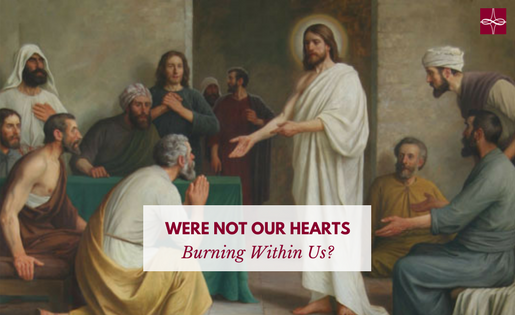

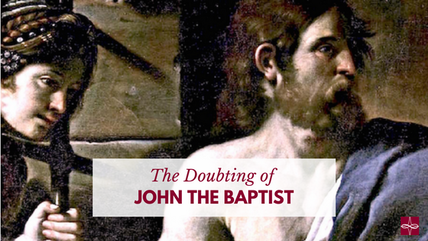



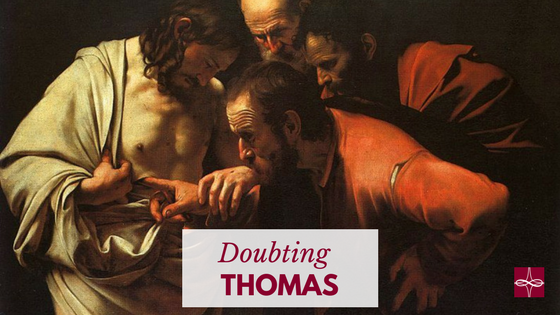

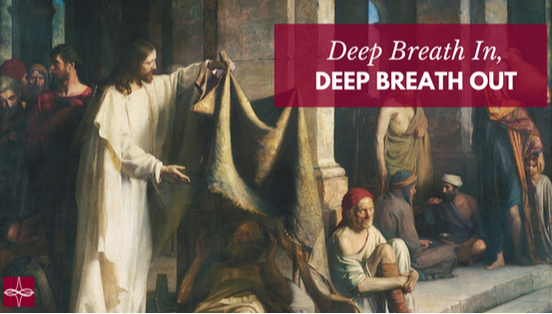

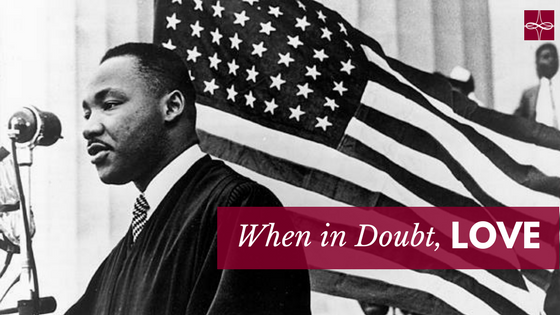



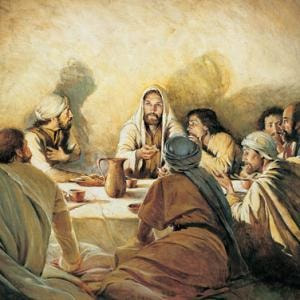
 RSS Feed
RSS Feed